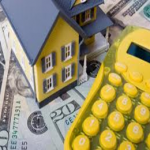It seems as if all of the headlines recently have focused upon the Federal Reserve Board’s diligence keeping interest rates low. We don’t typically think of Congress as a government body that can change the direction of interest rates. However, if you read the piece below which was recently published by HousingWire, you may be in for quite a shock. Congress is back in session and they are dealing with a budget crisis and mortgage rates could be the victim–
Congress will consider raising the fees Fannie Mae and Freddie Mac charge to lenders in order to pay for tax cuts and avoid the coming fiscal cliff. Lenders pass these costs on to the homebuyer, meaning taxpayers are essentially paying for their own tax cuts. The Federal Housing Finance Agency raised the fees another 10 basis points effective Nov. 1 for loans Fannie and Freddie purchase with cash. But in order to avoid roughly $500 billion in simultaneous tax hikes and spending cuts beginning in January, Congress may look again to the conforming agencies. “We are rapidly approaching the fiscal cliff and members of Congress will be on the prowl for new revenue,” said Isaac Boltansky, a policy analyst at research firm Compass Point.
What does that mean to you? It means that even if interest rates don’t go up, mortgage rates may still rise. There is no telling if and when this could happen. But with one hike already coming — if you are thinking about refinancing or purchasing a home, acting now is the best action you can take in order to avoid this risk. When any announcement comes through, there may be no time to react.
